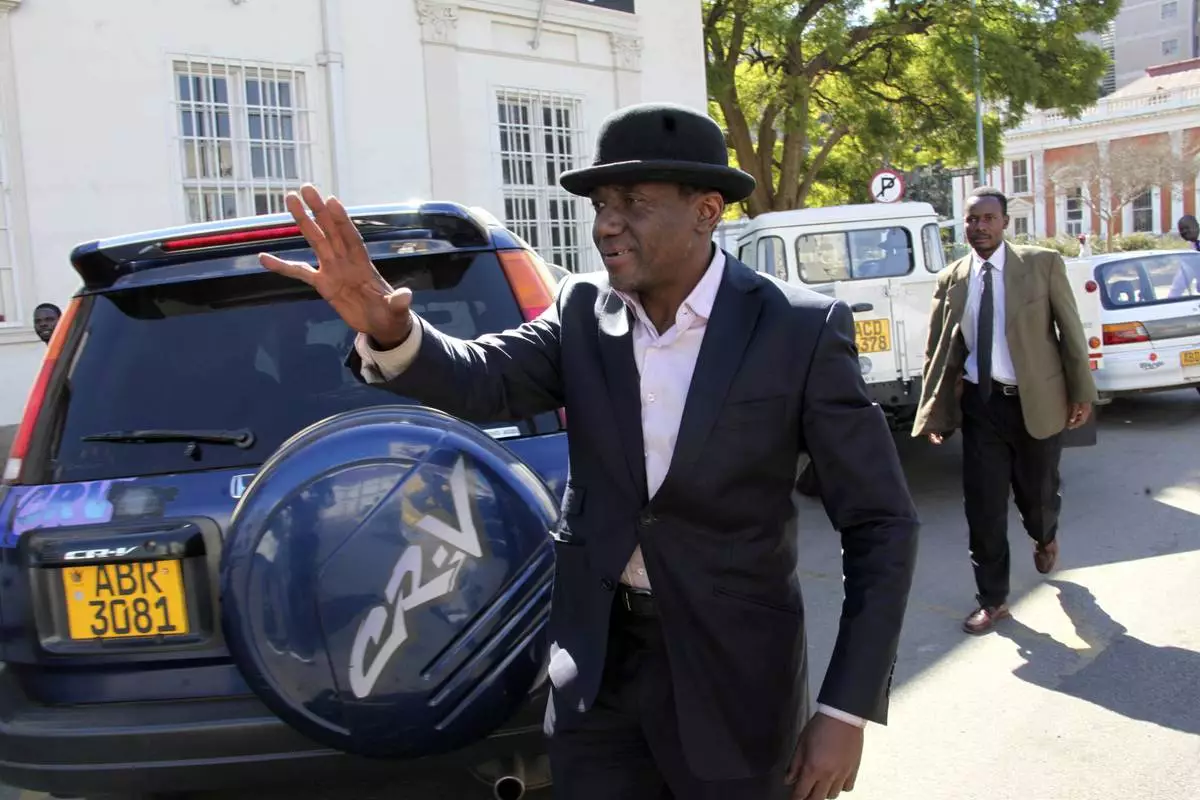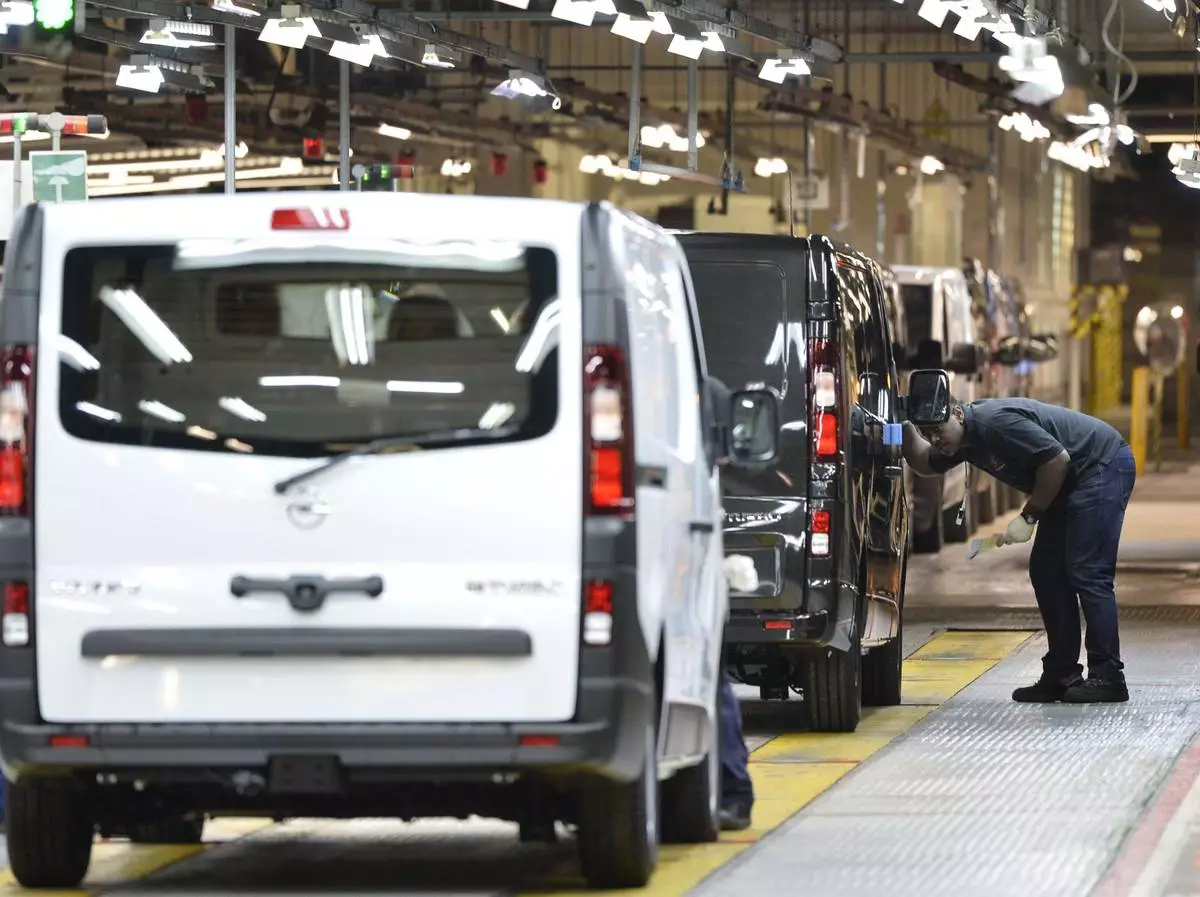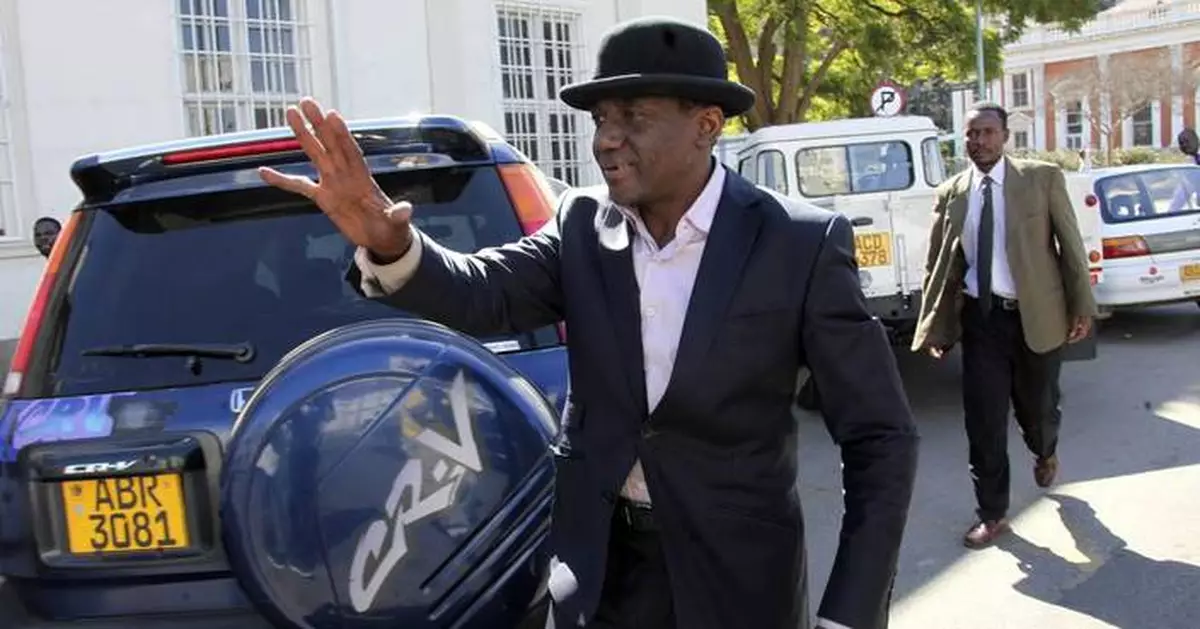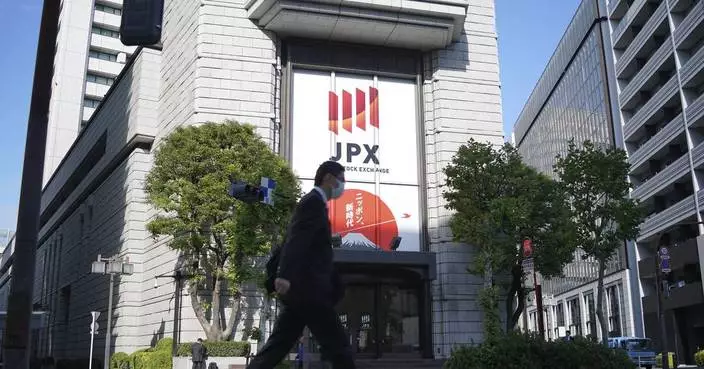HARARE, Zimbabwe (AP) — A Zimbabwean court freed an opposition leader and 34 activists Wednesday after sentencing them to suspended prison terms for participating in what authorities termed an unlawful gathering.
Magistrate Collet Ncube sentenced Jameson Timba, interim leader of a faction of the splintered Citizens Coalition for Change party, to a suspended two-year prison term after he and the activists had been held for more than five months in custody. The activists received lesser prison terms, also wholly suspended.
The magistrate convicted Timba and the activists last week. He acquitted 30 others who had been detained alongside Timba.
Police arrested them at Timba’s residence in the capital, Harare, and charged them with disorderly conduct and participating in a gathering with the intent to promote violence, breaches of peace or bigotry. The court acquitted them of the disorderly conduct charges in September.
Their lawyers said they were at the house for a barbecue to commemorate the Day of the African Child, a calendar event of the African Union.
Amnesty International described the detention as “part of a disturbing pattern of repression” by Zimbabwean authorities under President Emmerson Mnangagwa and called for an investigation into allegations that some of the activists were tortured while in police detention.
Mnangagwa's ruling ZANU-PF party has long been accused of using the police and courts to quash opposition, including under the autocratic former President Robert Mugabe, who ruled for 37 years before Mnangagwa replaced him in a coup in 2017.
AP Africa news: https://apnews.com/hub/africa

FILE - Then-Zimbabwe's minister of state in the Prime Minister's office Jameson Timba, arrives at the High Court in Harare, Sunday, June, 26, 2011. (AP Photo/Tsvangirayi Mukwazhi, File)
LONDON (AP) — Britain’s new Labour government will launch a consultation on auto manufacturers' sales targets during the transition to electric vehicles, following the decision by Stellantis, the owner of Vauxhall, to close its van factory in southern England at the potential cost of 1,100 jobs.
Business Secretary Jonathan Reynolds told lawmakers Wednesday that the problems encountered by Stellantis in the transition to electric vehicles are not unique, adding that the government will do all it can to prevent the plant's closure.
Stellantis blamed its decision Tuesday to close its plant in Luton on the U.K.'s “stringent” zero-emission vehicle mandate, or ZEV, which sets strict targets for manufacturers.
With demand in many parts of the world the world for electric vehicles weaker than anticipated, despite the discounts on offer, it is increasingly expensive for carmakers to turn a profit, especially with sluggish global growth and relatively high interest rates.
Other manufacturers across Europe, including Ford and Volkswagen, recently announced plans to close some operations in light of targets they are struggling to meet.
The mandate in the U.K. requires major car manufacturers to have zero-emission — in effect, purely electric — vehicles make up 22% of their sales fleet this year, increasing to 28% in 2025 and rising further in subsequent years. If a manufacturer does not hit the targets, it is fined 15,000 pounds ($19,000) for every vehicle that it sells that does not comply with the mandate.
The targets were laid out two years ago by the previous Conservative administration, which set a deadline of 2035 for phasing out the sale of new petrol and diesel-powered cars.
Reynolds confirmed plans to review the ZEV mandate as part of a consultation on the new Labour government’s plan to ban the sale of new “purely petrol and diesel” cars by 2030.
“Car manufacturers around the world are battling with increased costs, supply chain issues and changing consumer demand in a highly competitive, fast-evolving market," he said.
In its manifesto for government ahead of the July 4 election, Labour promised a “phase-out date of 2030 for new cars with internal combustion engines.” That caused industry anxiety over the future of hybrids, which use electric batteries along with petrol or diesel power.
“We will be shortly fast-tracking a consultation on our manifesto commitment to end the sales of new purely petrol and diesel cars by 2030," Reynolds said. “But we will use that consultation to engage with industry on the previous government’s ZEV transition mandate and the flexibilities contained within it.”
His use of the term “purely” has been interpreted as suggesting that hybrid vehicles can still be sold after 2030.
The Society of Motor Manufacturers and Traders, the industry's lobby group in the U.K., insisted that its members remain “committed to delivering a decarbonised road transport sector” but that the ZEV mandate will cost automakers around 6 billion pounds ($7.5 billion) this year alone.
“We need an urgent review of the automotive market and the regulation intended to drive it,” the group's chief executive Mike Hawes said. “Not because we want to water down any commitments, but because delivery matters more than notional targets.”
Rather than changing the current rules, environmental campaigners suggest the government should make electric vehicles more appealing, potentially by giving new owners tax advantages or reducing the cost of on-street charging via subsidies.
"Chopping and changing policies damages consumer demand and undermines investor confidence," said Nick Davies, head of climate policy at the London-based Green Alliance.

An employee inspects a car at the Vauxhall vehicle production plant in Luton, England, Feb. 2, 2015. Toby Melville/PA via AP)











